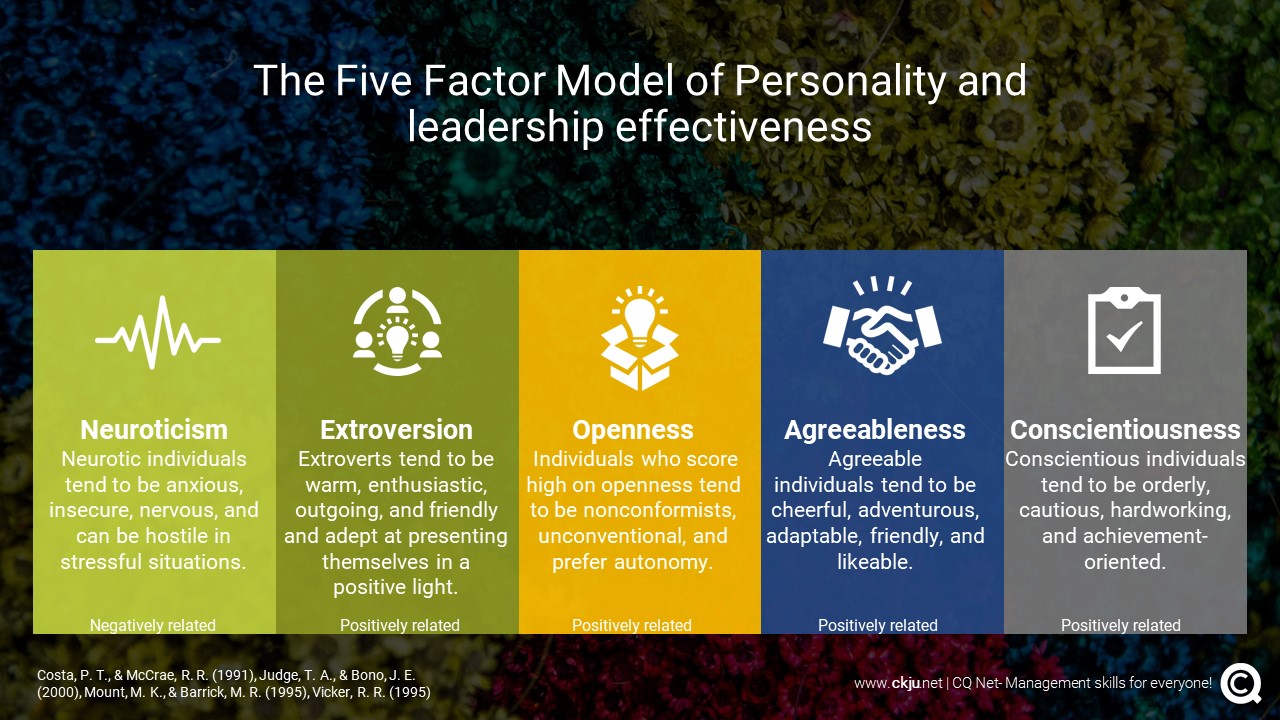- Blog
- Great Man Theory
Contents
- What is the great man theory? Leadership seen as a heroic act performed by an individual
- To this day there are no generally-accepted universal leadership qualities
- Leadership redefined: Situation, environment, and people are at the core of leadership
- Leadership Member Exchange Theory (LMX): Leadership seen as an interactive process
- Team leadership theories: How one plus one equals three
- Authentic leadership: Moral, ethic, self-awareness, and positive psychology
- Agile leadership: Staying ahead of the curve in a VUCA environment
- Learning about other leadership approaches and frameworks adds value
- References and further reading
The Great Man Theory’s dream to discover universal characteristics is still a controversial topic in the scientific community, but couldn't be confirmed up to now.Dr. Markus Nini
What is the great man theory? Leadership seen as a heroic act performed by an individual
The aspiration and ability to inspire people for a common goal keeps academia as well as everyday practice equally busy. One of the first leadership theories is based on the assumption that there are certain characteristics that distinguishes people with leadership capabilities from others. This Great Man Theory is still widespread and is particularly popular among popular science literature, revealed by many business bestseller titles. What is this theory all about?
To this day there are no generally-accepted universal leadership qualities
The search for characteristics that define successful leaders began with a number of studies in the first half of the 20th century. Stogdill (1948) came to the conclusion that reliability, sociability, initiative, and confidence are traits that characterize successful leaders. Other scientists extended this list by a number of additional characteristics (creativity, masculinity, and motivation - only to name a few).
However, they were not able to unravel the long-desired pattern of repeating and by other scientists confirmed properties. Finally, the realization prevailed that there are several properties that are at least related to successful leadership. Through his studies, Judge et al. (2002) reached the conclusion that the personal characteristics extraversion, conscientiousness, and being open for new experiences are properties that positively correlate with leadership. These findings are reflected in the trait-based approach to leadership.
The Five Factor Model of Personality is a personality inventory which can be used in organizations to select and develop individuals with leadership potential. Furthermore, cognitive performance and most of all intelligence (in academia also referred to as "g") are features that are connected with successful leadership (Schmidt 2002). The Great Man Theory’s dream to discover universal characteristics is still a controversial topic in the scientific community, but couldn't be confirmed up to now.
Leadership redefined: Situation, environment, and people are at the core of leadership
What is the current understanding of leadership if the Great Man Theory could not be confirmed up to date? As often times in life, there is also no simple answer to this question. The focus of current leadership approaches moved away from a heroic hero towards a combination of several factors accounting for the respective environment and the “human factor”. We have summarized a few of the currently discussed approaches below.
Management skills newsletter
Join our monthly newsletter to receive management tips, tricks and insights directly into your inbox!
Leadership Member Exchange Theory (LMX): Leadership seen as an interactive process
The LMX theory is not entirely new (Graen, Uhl-Bien 1995), but is still quite popular. In contrast to the Great Man theory, LMX assumes that leadership is always an interactive process between at least two people (leader and follower). During this interactive process a relationship is formed between the two participants. This relationship can be of high or of low quality.
The most decisive criteria for a high quality relationship are respect, trust, and commitment. The better the relationship, i.e. the relationship quality, the higher is the work performance, satisfaction and general welfare (Gerstner, Day 1997).
Team leadership theories: How one plus one equals three
Collaboration in teams in order to reach a common goal with combined forces is an approach that becomes more and more relevant. In this context, leadership represents team development, inspiration for the common goals and further advancement (Hogan, Kaiser 2005). Group identity development plays a special role since it allows members to identify with the team.
Common goals as a part of the group identity are a characteristic that distinguishes real teams from pseudo teams (West, Lyubovnikova 2012). Therefore, leadership becomes a shared process (shared leadership) that is not only perceived by a single person, but embedded in the whole team. This results in a performance boost to a level that exceeds the combined performance of the individual team members.
Authentic leadership: Moral, ethic, self-awareness, and positive psychology
New insight in the field of positive psychology, motivation research, and the increasing relevance of ethic and moral questions were included in a new approach to leadership (Avolio et al. 2009). Authentic leadership describes leading actions that require a stable and consolidated personality while following high moral and ethic standards and is aiming for a positive development of the team and the organization as a whole.
Thus, authentic leadership combines new insight into the effects of positive emotions on people with elements of already established leadership approaches such as ethic and transformational leadership into a new promising approach.
Agile leadership: Staying ahead of the curve in a VUCA environment
Agile leadership is another alternative leadership framework that has started to gain traction recently. In contrast to most available leadership approaches, agile leadership is a holistic framework that relies on a set of principles derived from systems theory, cybernetics and other social sciences. In its’ core, agility is a decision-making and decision-implementation framework.
Agile leadership doesn't rely on a strong leader, but on a decentralized and team-based leadership approach. By going through fast decision-making cycles instead of an extensive and time-consuming planning phase, agility allows for a quick and effortless adjustment to an ever changing environment. This makes agile leadership especially suitable for an environment that is characterized by a high level of volatility, uncertainty, complexity and ambiguity (VUCA).
Learning about other leadership approaches and frameworks adds value
According to Hollywood and business literature successful leadership is the result of great individual characters that lead their organization to success by their actions. As discussed in this blog, this traditional understanding is outdated. Instead, approaches that include the human factor, the environment, and the respective setting are of increasingly greater importance.
And yes, there are many more leadership approaches and frameworks with a proven track record regarding their effectiveness you should be aware of. We from CQ Net - Management skills for everyone! provide you an overview of the most important leadership approaches and how to apply them in practice.
References and further reading
Avolio, Bruce J.; Walumbwa, Fred O.; Weber, Todd J. (2009): Leadership: current theories, research, and future directions. In Annual review of psychology 60, pp. 421–449. DOI: 10.1146/annurev.psych.60.110707.163621.
Gerstner, Charlotte R.; Day, David V. (1997): Meta-Analytic review of leader–member exchange theory. Correlates and construct issues. In Journal of Applied Psychology 82 (6), pp. 827–844. DOI: 10.1037/0021-9010.82.6.827.
Graen, George B.; Uhl-Bien, Mary (1995): Relationship-based approach to leadership. Development of leader-member exchange (LMX) theory of leadership over 25 years: Applying a multi-level multi-domain perspective. In The Leadership Quarterly 6 (2), pp. 219–247. DOI: 10.1016/1048-9843(95)90036-5.
Hogan, Robert; Kaiser, Robert B. (2005): What we know about leadership. In Review of General Psychology 9 (2), pp. 169–180. DOI: 10.1037/1089-2680.9.2.169.
Judge, Timothy A.; Bono, Joyce E.; Ilies, Remus; Gerhardt, Megan W. (2002): Personality and leadership. A qualitative and quantitative review. In Journal of Applied Psychology 87 (4), pp. 765–780. DOI: 10.1037//0021-9010.87.4.765.
Schmidt, Frank L. (2002): The Role of General Cognitive Ability and Job Performance. Why There Cannot Be a Debate. In Human Performance 15 (1-2), pp. 187–210. DOI: 10.1080/08959285.2002.9668091.
STOGDILL, R. M. (1948): Personal factors associated with leadership; a survey of the literature. In The Journal of psychology 25, pp. 35–71. DOI: 10.1080/00223980.1948.9917362.
WEST, MICHAEL A.; LYUBOVNIKOVA, JOANNE (2012): Real Teams or Pseudo Teams? The Changing Landscape Needs a Better Map. In Industrial and Organizational Psychology 5 (1), pp. 25–28. DOI: 10.1111/j.1754-9434.2011.01397.x.
Top Rated
About the Author

Comments
Most Read Articles
Blog Categories
RELATED SERVICES










Add comment